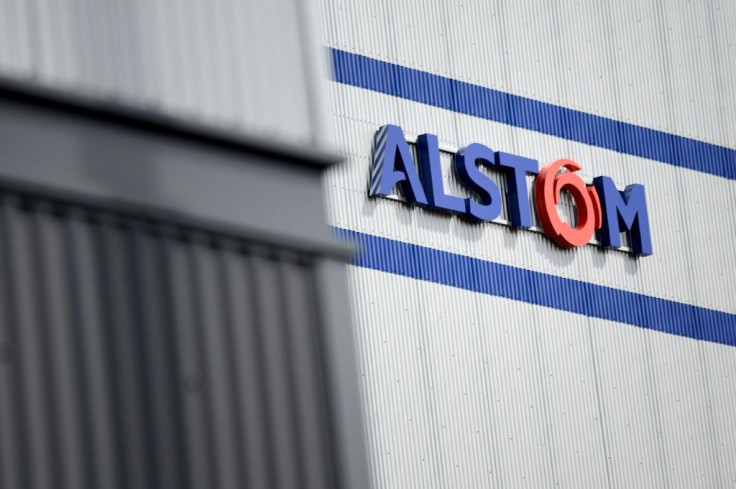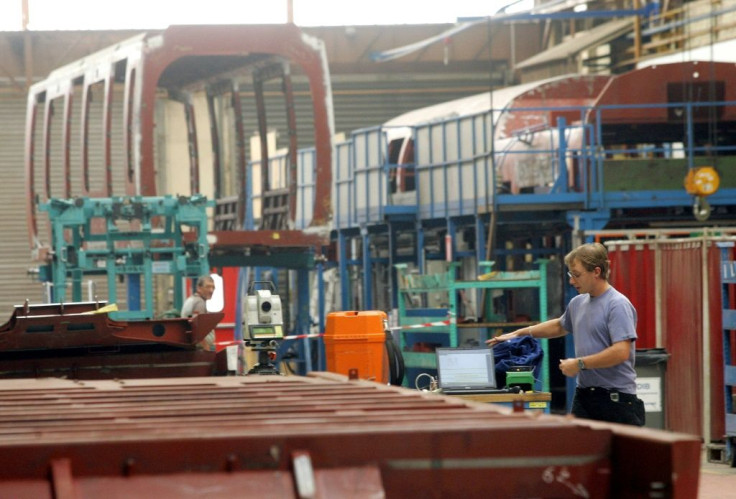Alstom Agrees To Buy Bombardier's Rail Division

French company Alstom said on Monday it had agreed to buy the rail division of Bombardier, speeding up the Canadian firm's fire sale.
Alstom will pay up to 6.2 billion euros ($6.8 billion) in a mix of cash and shares, according to a memorandum of understanding between the firms.
The Quebec pension firm Caisse de Depot, which owns 32.5 percent in Bombardier Transportation, will become Alstom's biggest single shareholder on completion with around 18 percent in the French company.
Alstom said it planned to move its Americas headquarters to Montreal.
"This acquisition will improve our global reach and our ability to respond to the ever-increasing need for sustainable mobility," said CEO Henri Poupart-Lafarge.
"There is no idea of restructuring or threats to jobs, but rather the opposite," he later told journalists.
The acquisition stood to boost Alstom's presence in markets where Bombardier is strong -- notably Germany, Britain, North America -- and also in China where the Canadian company's position is "unique", he said.
Analysts said the French company hopes to add scale in a sector where China's state-owned CRCC is the world's largest rolling stock manufacturer.
Alstom's move comes a year after the European Commission blocked an attempt at a mega-merger of its rail activities with those of Germany's Siemens, which would have created a European rail champion.
Berlin-based Bombardier Transport last year posted sales of $8.3 billion, ending 2019 with $35.8 billion of business on its order books.
Alstom's 2018-2019 sales came in at $8.1 billion and the firm had outstanding orders of $43 billion at the end of 2018.
Heavily indebted Bombardier, which started out making snowmobiles 80 years ago, embarked in 2015 on a major restructuring and said in January it was planning a range of divestments.
Last year, burdened by a debt pile of some $9 billion -- most of it long-term -- Canada's top manufacturer agreed to sell off its regional jet programme to Japan's Mitsubishi Heavy Industries for $750 million.

In 2018, it had sold control of the CSeries medium-haul jet programme to Airbus which renamed it the A220.
Last week, Bombardier said it would sell off to Airbus and the Quebec government -- where the firm has some 14,000 staff and supports around another 40,000 jobs -- its remaining 33.58 percent stake in the programme.
Bombardier also recently announced it was selling off its aerostructures business to Spirit AeroSystems of the US for more than $1 billion in cash and debt.
The Canadians, with a workforce of some 36,000, retain their profitable Learjet, Challenger and Global Express business jets activity.
On January 16, Bombardier had announced it was "actively pursuing alternatives that would allow us to accelerate our debt paydown," while again revising downward its preliminary 2019 revenues.
Alstom, which makes France's TGV high-speed trains, employs 36,300 staff, a quarter of them in France.
Between them, the two firms have a virtual monopoly on rolling stock in France and regularly work in tandem on infrastructure such as metros and the Paris RER regional train network.
Adding Bombardier Transport would position Alstom as a global rival to China's giant CRCC which boasted sales of around $30 billion in 2018.
Although some 90 percent of its sales are in China, China Railway Construction Corporation (CRCC) has been spreading its tentacles further afield notably with tram investments in Portugal.
It has also intimated, according to weekend British media reports, a readiness to engage in construction of Britain's HS2 high-speed project.
Alstom had already held up the Chinese threat in trying to merge with Siemens only for Brussels to rule a merged company would have had an overly dominant market position in Europe.
Poupart-Lafarge, who began his career at the World Bank, has targeted "internal investment and external partnerships" but also "acquisitions" as the way ahead after the derailed Siemens merger.
Alstom has focused on transport after ceding its energy interests to General Electric five years ago.
It is now debt free with cash in the bank.
© Copyright AFP {{Year}}. All rights reserved.



















